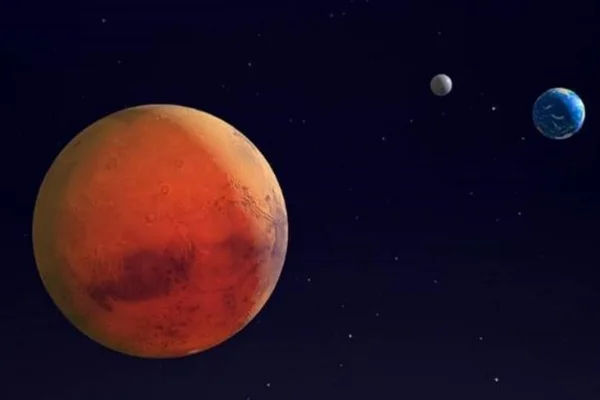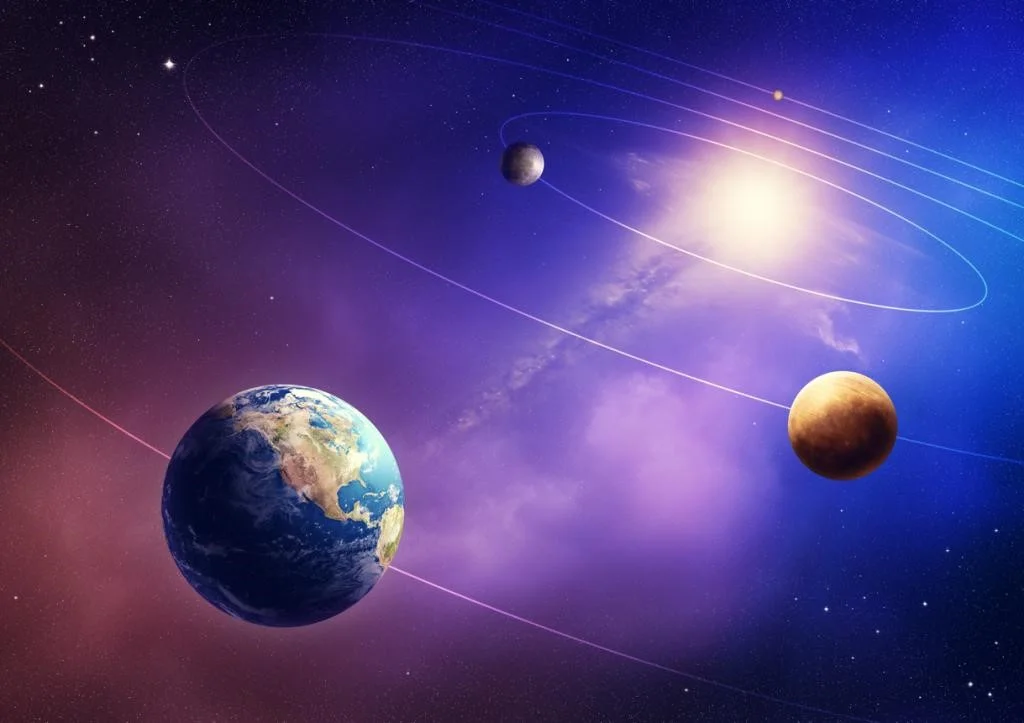Researchers recently uncovered 2.4 million-year Astronomical Grand cycles that cause shifts in energy levels of deep-sea currents and established its link with Mars’ orbit.
Ket Findings on Astronomical Grand cycles:
- Geological sedimentary evidence examined by University of Sydney in the deep sea, revealed a 2.4-million-year cycle in Earth’s climate fluctuations.
- This cycle is linked with the orbits of both Earth and Mars around the Sun, and is termed “astronomical grand cycles“.
- The research team examined seafloor erosion as evidence of the cycle, which is driven by orbital forces and affects deep ocean currents.
- The interactions between Earth and Mars, influenced by their orbits, create resonances that change planetary eccentricity.
- These changes result in periods of higher incoming solar radiation and warmer climates on Earth, occurring in cycles of 2.4 million years.
- It is similar to the shorter Milankovitch cycles, but the grand cycle affects the amount of sunlight Earth receives and has an impact on climate.
- Milankovitch cycles are periodic changes in the orbital characteristics of a planet that control the amount of sunlight it receives.
- Changes in the shape of Earth’s orbit, the tilt of its axis, and the wobbling of its poles all affect the amount of sunlight.
- The effect of giant planets, Jupiter and Saturn, causes the shape of Earth’s orbit to vary from nearly circular to slightly elliptical.
Impact of Deep Ocean Eddies:
- Warmer cycles are associated with warmer oceans and more vigorous deep ocean circulation.
- This circulation, driven by deep-sea eddies, could potentially prevent ocean stagnation even if the Atlantic Meridional Overturning Circulation (AMOC) weakens or stops functioning.
- AMOC is a system of ocean currents that moves warm water from the tropics to the North Atlantic and cold water from the North Atlantic back toward the equator.
- AMOC weakened over the past century and is approaching a tipping point, but intense deep-ocean eddies in warm conditions may counteract it.
- Deep ocean eddies provide oxygen to the deep ocean and draw carbon dioxide from the atmosphere into the ocean.
- This process could have implications for carbon cycling and climate regulation, but these cycles are not linked to human-caused climate change.
Ref:Source
| UPSC IAS Preparation Resources | |
| Current Affairs Analysis | Topperspedia |
| GS Shots | Simply Explained |
| Daily Flash Cards | Daily Quiz |



